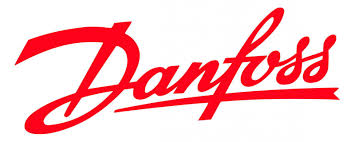The Egyptian Businessmen Association held a public symposium headed by Engineer Majd al-Din al-Manzalawi, Secretary-General and Chairman of the Association’s Industry and Scientific Research Committee, a meeting with Wassim Merheby, an expert in the field of technology and artificial intelligence, and in the presence of Dr. Hossam Ezz al-Din, Director General of the Industrial Pollution Control Program at the Ministry of Environment, and with the participation of a number of heads. The association’s specialized committees include Engineer Mustafa Al-Najari, Chairman of the Agriculture and Irrigation Committee, Dr. Mohamed Hilal, Chairman of the Energy Committee, Hussein Lotfy, Chairman of the Environment Committee, and a number of deputy chairmen of the committees, and members of the association who work in the industrial, agricultural, and export sectors.

Discussions at the symposium centered on the requirements outlined in the Carbon Border Adjustment Mechanism (CBAM) law, emphasizing the urgent need for Egyptian exports to align with green economy principles. Key topics included the integration of automated quality data aggregation across supply chains to streamline compliance processes, accessing financing opportunities from leading European institutions, and enhancing industry performance to support a sustainable economy in Egypt.

Highlighting the timeline for compliance, Wassim Merheby, CEO of Verofax, announced that the new system for exporting to the European market would commence registration on January 1, 2025, with full implementation slated for January 2026. He urged Egyptian factories to swiftly adapt to the new international legislation to avoid export bans and 35% hefty tariffs.
The symposium also shed light on the importance of automating compliance processes for exporting factories to meet carbon footprint standards efficiently, giving Egyptian exporters the confidence to deliver high-quality and validated data ensuring long-term partnerships with the EU. This automation is facilitated through a comprehensive lifecycle assessment solution integrating with over 130 systems, ensuring seamless verification of recycled goods, emissions reduction, and quality data aggregation for seamless exports to the EU.
Hossam Ezz El-Din, Director General of the Industrial Pollution Reduction Program at the Ministry of Environment outlined the program’s aim to incentivize industries to adopt environmentally compliant and sustainable practices through financing packages of loans and grants, funded by the European Union.
Elaborating on the financing programs available, El-Din detailed the two types of programs, loans and grants, which the Central Bank of Egypt directed to local banks, including the Ibad program, which has a value of 135 million euros and will be completed at the end of this year, while the new program is called Green and will start in 2025. Its size is 268 million euros, and a period of allowance of one to two years, and repayment over 5 years. It also allows borrowing in foreign currency and repayment in Egyptian pounds.
The symposium concluded with a call for continued collaboration between government bodies, financing institutions, and industries to facilitate a smooth transition towards environmentally compatible production practices and ensure Egypt’s competitiveness in international markets







